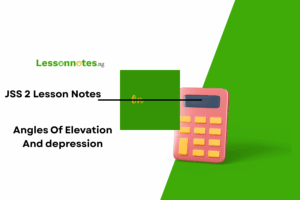Population II: Population Census SS1 Economics Lesson Note
Download Lesson Note
Lesson Notes
Topic: Population II: Population Census
POPULATION CENSUS
A population census refers to the headcount of the people. It is the process by which the number of people living in a country or a given geographical area is counted. In developed countries, it is carried out by the government at regular intervals, usually every ten years.
Population census provides information about age, sex, occupation, and residence.
TYPES OF POPULATION CENSUS
- De-facto Population Census: This is a system of counting only those who are physically present during the census.
- De-jure Population Census: In this type of census, people who are regular residents in a particular place are counted irrespective of the place they are residing temporarily. It does not matter whether the person is present or not. This is the population census commonly referred to as counting by PROXY
IMPORTANCE OF THE POPULATION CENSUS
- Population Size: Population census helps the government to know the number of people living in the country
- Revenue Estimates: It also helps in the determination of the taxable adults to know the amount of revenue expected.
- Forecasts Future Economic Needs: The population census also enables the country to forecast its future economic needs e.g. housing, schools, food etc.
- Formulation of Economic Policies: The number of people in a country is used to formulate economic policies
- Distribution of Resources: Population census assists the government in the distribution of resources e.g. areas of high population like Lagos and Kano will get more resources than areas of low population
A population census enables the government to obtain adequate and relevant statistics which will serve as a basis for economic planning.
PROBLEMS ASSOCIATED WITH POPULATION CENSUS
- High Cost: A huge amount of money is involved in the conduct of the population census.
- Shortage of Census Personnel: Trained personnel like demographers are not easily available hence the use of untrained personnel in the conduct of census leads to inaccurate results.
- High Degree of Illiteracy: As a result of the high level of illiteracy in many developing countries, it has become very difficult to conduct a successful population census as these people do not know how to read and write. This makes self-enumeration difficult.
- Prohibitive Customary and Religious Beliefs: Some types of custom and religion make census taking difficult. For example, in Muslim areas, women are not allowed to appear freely in public. For this reason, they may not be seen by census enumerators.
- Inadequate Means of Transport and Communication: Many rural areas have no motorable roads and adequate means of sending and receiving messages. These problems hamper the easy movement of census officials.
- Poor Regional Planning: Most towns and villages are not planned.






















